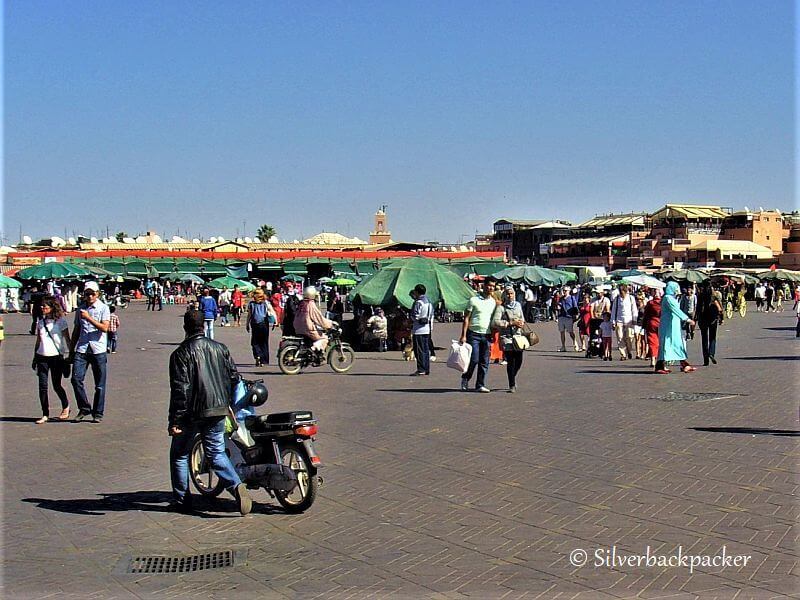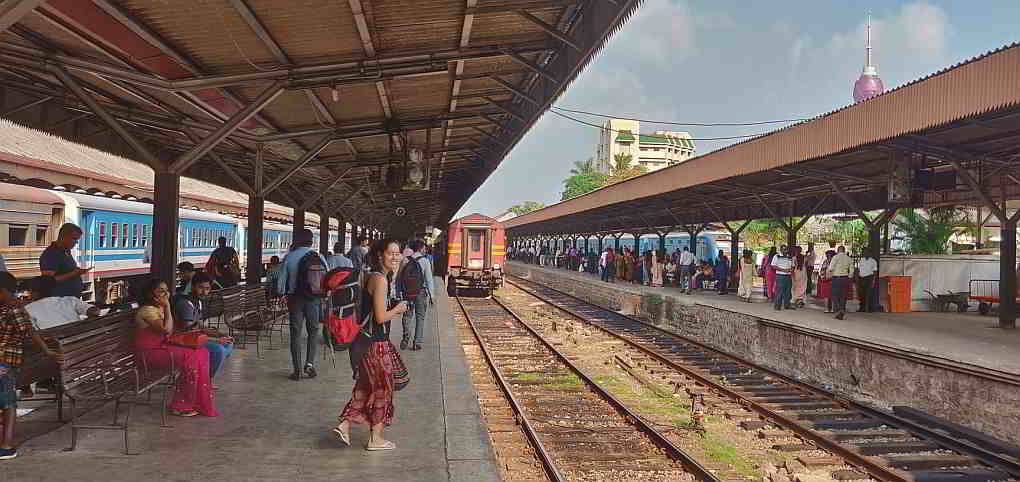Tourist vs Traveller: The Great Debate
Tourist vs Traveller – What is it?
The debate between being a tourist and a traveller has sparked countless discussions among avid explorers, digital nomads, and casual holiday-goers alike. Though the terms are often used interchangeably, they evoke very different images and attitudes towards exploring the world. But what truly separates a tourist from a traveller, and why does it matter?
Let’s delve into the heart of the tourist versus traveller debate, examining the key differences, common misconceptions, and why embracing elements of both might be the best way to experience the world.

Understanding the Terminology
Before diving into the nuances of this debate, it’s essential to establish what we mean by “tourist” and “traveller”.
- Tourist: A tourist is traditionally seen as someone who visits popular destinations, often on a structured holiday package, and tends to stick to well-trodden paths. Tourists usually have a set itinerary, visit famous landmarks, and often prioritise comfort, convenience, and a sense of security.
- Traveller: A traveller, on the other hand, is perceived as someone who seeks deeper, more authentic experiences. They prefer to immerse themselves in local cultures, stray from the beaten path, and engage with locals on a more personal level. Travellers are often seen as independent, adaptable, and willing to sacrifice comfort for the sake of unique experiences.
While these definitions might sound straightforward, the reality is far more complex. The distinction between tourists and travellers is often blurred, and many individuals embody traits of both.

Common Stereotypes and Misconceptions
One of the biggest issues in the tourist versus traveller debate is the prevalence of stereotypes. Tourists are frequently depicted as shallow, ignorant of local customs, and only interested in ticking off sights on a bucket list. They’re imagined as people who travel in large groups, flood famous attractions, and take endless selfies without truly appreciating the experience.
Conversely, travellers are often romanticised as enlightened individuals who live like locals, have a deep understanding of the cultures they visit, and always know the best hidden gems that others overlook. Travellers are seen as the “real” explorers, while tourists are dismissed as superficial.
However, these stereotypes are overly simplistic and often unfair. There’s nothing inherently wrong with visiting popular destinations or taking guided tours. These experiences can be just as enriching as the “off-the-beaten-path” adventures that travellers often seek. Similarly, not all travellers have a profound understanding of every culture they encounter, and sometimes their pursuit of authenticity can border on pretension.

The Motivation Behind the Journey
One way to differentiate between a tourist and a traveller is to consider the motivation behind the journey. Tourists typically travel for relaxation, to escape their daily routines, and to enjoy a change of scenery. They often seek comfort, convenience, and familiar experiences that can provide them with a sense of safety and enjoyment. There’s a strong emphasis on leisure, sightseeing, and making the most of their limited holiday time.
Travellers, however, are usually driven by curiosity, a desire for personal growth, and a quest for deeper connections with the places they visit. They often travel to learn, challenge themselves, and understand different cultures beyond the surface level. Travellers tend to prioritise experiences over comfort and are willing to endure the occasional hardship for the sake of discovery.
Despite these differences, it’s important to recognise that both motivations are valid. Travelling purely for relaxation does not make one less of an explorer, just as seeking authentic experiences does not necessarily make someone superior.

The Approach to Travel
The approach to travel also plays a significant role in distinguishing tourists from travellers. Tourists tend to plan their trips meticulously, often booking everything in advance, from flights and accommodation to tours and activities. They prefer structured experiences, reliable guides, and itineraries that maximise their time and minimise uncertainties.
Travellers, on the other hand, are often more spontaneous. They might arrive at a destination with little more than a rough plan and the willingness to see where the road takes them. Travellers embrace unpredictability, seeking local recommendations and allowing the journey to unfold naturally. This more flexible approach can lead to unique experiences, but it also comes with its own set of challenges and risks.
However, neither approach is inherently better. Some travellers might find joy in meticulously planning their adventures, while some tourists might relish the thrill of impromptu decisions. Ultimately, it’s the mindset and openness to new experiences that define the richness of a journey, not the level of planning involved.

Cultural Engagement and Respect
Cultural engagement is another key aspect of the debate. Tourists are often criticised for being culturally insensitive or failing to make meaningful connections with locals. Critics argue that tourists stick to “tourist traps” and rarely step out of their comfort zones to engage with local customs, languages, or traditions.
Travellers, meanwhile, are celebrated for their efforts to connect more deeply with the places they visit. They’re seen as respectful of local cultures, eager to learn the language, and willing to adapt to different social norms. Travellers are often portrayed as more conscious of their impact on the destinations they visit, striving to leave a positive footprint.
While there is some truth to these observations, it’s important not to generalise. Many tourists do make an effort to engage with local culture, learn about history, and show respect for the places they visit. Conversely, not all travellers are paragons of cultural sensitivity; some can be equally oblivious or dismissive of local customs. True cultural engagement depends on individual attitude, not the label one adopts.

The Environmental and Ethical Dimension
In recent years, the environmental and ethical dimensions of travel have added another layer to the tourist versus traveller debate. Tourists are often associated with over-tourism, which can harm local communities and ecosystems. Popular destinations like Venice, Barcelona, and Bali have all suffered from the negative impacts of mass tourism, including environmental degradation, rising costs of living, and cultural erosion.
Travellers, by contrast, are seen as more conscious of their environmental footprint. They tend to avoid overcrowded sites, support local businesses, and choose sustainable travel options. The idea is that travellers tread lightly and leave places better than they found them.
However, it’s not just about the label but the choices we make as individuals. Anyone, regardless of whether they identify as a tourist or traveller, can make responsible decisions. Opting for eco-friendly accommodation, reducing waste, supporting local artisans, and being mindful of one’s impact are steps that everyone can take to become more sustainable explorers.

Why the Debate Misses the Point
Ultimately, the tourist versus traveller debate often misses the point: travel is a deeply personal experience. Whether you identify as a tourist, a traveller, or somewhere in between, the way you choose to explore the world is entirely your own. What matters most is the intention behind your journey, the respect you show to the places you visit, and the connections you make along the way.
Rather than drawing rigid lines between tourists and travellers, it’s more productive to focus on being conscious, considerate, and open-minded explorers. Embrace the joys of traditional sightseeing, but also seek out moments of spontaneity and deeper connection. Plan your trip meticulously, but leave room for the unexpected. Learn about local cultures, but don’t beat yourself up for enjoying a few home comforts.
In the end, there’s no right or wrong way to travel. The world is vast, and there’s room for everyone, whether you’re exploring the bustling streets of Tokyo on a guided tour or trekking solo through the remote mountains of Peru. So, let go of the labels, appreciate the journey for what it is, and remember that the greatest adventure is the one that speaks to your soul.
So what’s my point really? By all means, be a traveller but please don’t be a travel snob – and don’t sneer at those who rush from one spot to another. Perhaps, their resources – time and money – are limited, or they just enjoy travelling that way. This tourist versus traveller distinction is all in the mind – yours.

Essential Travel Guides
Tourist vs Traveller:
The Great Debate
Check Out These Related Posts
How to Benefit More from Urban Travel
If travel didn’t cost anything, then you’d never see me again.
If you enjoyed reading “Tourist vs Traveller: The Great Debate” then please share this page with your friends.
Leave a comment below to let me know what you liked best.
Follow Silverbackpacker on Facebook, Instagram, and Pinterest for more travel adventures and be notified about my latest posts and updates!
Thankyou for sharing 🙂
Please Note – All blog post photos on Silverbackbacker.com are of a lower quality to enable faster loading and save you data. If you would like to buy or license higher quality copies of any of the photographs you can email us at silverbackpackertravels@gmail.com
All photographs and content on this website remain the property of Silverbackpacker.com. Images may not be downloaded, copied, reproduced or used in any way without prior written consent.
Print purchases entitle the purchaser to the ownership of the image but not to the copyrights of the image which still remain with Silverbackpacker.com even after purchase.
Follow Silverbackpacker for more of his Travels
Facebook @silverbackpacker | Instagram @silverbackpacker
Twitter @silverbackpaker | Pinterest @silverbackpaker
Audere Est Facere – Silverbackpacker.com – To Dare is To Do
Affiliate Disclaimer: Links on this website may be affiliate links that could result in us receiving compensation when you purchase a product or service from that link. You do not pay any extra fees for these items. This helps us to keep this website going. Thank you for your support.
Disclaimer | Privacy Policy | Cookie Statement © All Rights Reserved

